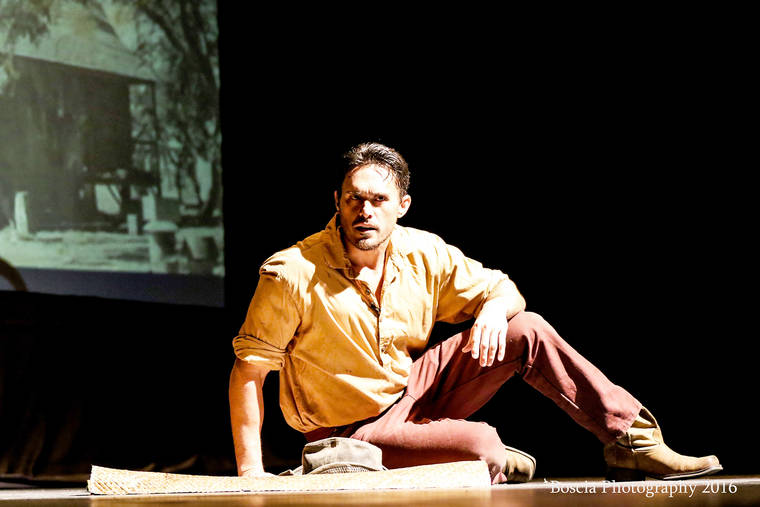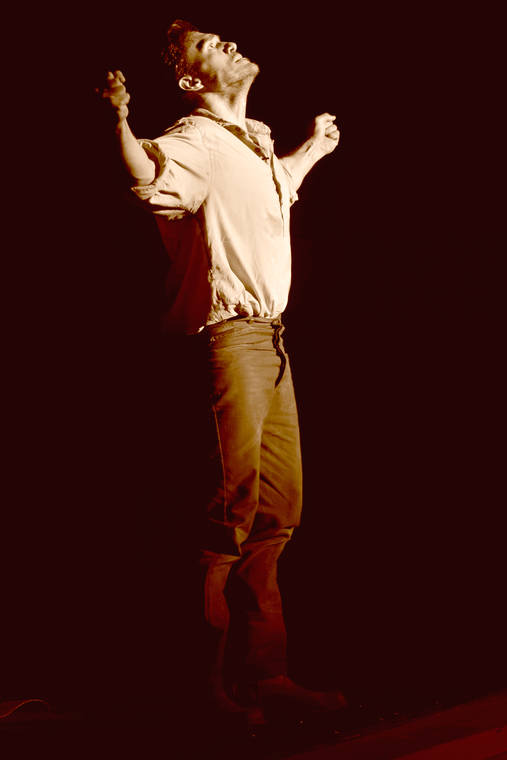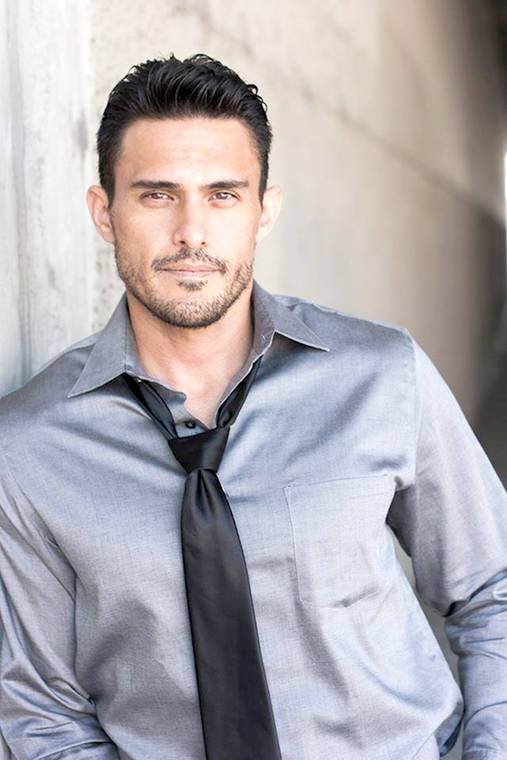For Native Hawaiian actor Moronai Kanekoa, getting roles as an actor has been a struggle in Los Angeles, and even more so in finding roles as a Native Hawaiian in film or theatre.
That’s why acting as a Native Hawaiian in the national touring play “Legend Of Ko‘olau” has been very special, he said.
“Before I acted in the ‘Legend of Ko‘olau,’ I’d done a number of roles mainly in Mexican TV soap operas,” said Kanekoa, born and raised on Maui and a former University of Hawaii Regent Scholar.
Since then, Kanekoa has gone on to do a number of films, including a starring role in Brian Kohne’s independent, award-winning film “Kuleana.”
Kohne selected Kanekoa to act in his film after seeing his performance in “Legend of Ko‘olau” and being impressed with his acting abilities.
“He’s brilliant in every role he takes on and, certainly, in this wonderful show,” Kohne said.
“Legend of Ko‘olau” playwright Gary T. Kubota said many applied for the part, but only Kanekoa was able to memorize half the play in three weeks.
“We went to stage in six weeks at the Hawaii Theatre,” Kubota said.
“I mean my play has more words in it than Hamlet’s speech by William Shakespeare. His memory and performances have been extraordinary. People have laughed and cried and laughed again during performances,” Kubota said.
Kubota said the most gratifying thing for him is that the play goes deep into Hawaii history and that visitors as well as local audiences have enjoyed the story, including descendants of relatives of Kaluaiko‘olau and his wife Pi‘ilani.
“Some of them have told me they plan to see the play again on Kauai, where the story takes place,” Kubota said.
Kubota said the story has been told by authors Kahikina Sheldon and Jack London, the late, Pulitzer Prize-winning poet W.S. Merwin, but never in live theatre from the point of view of Kaluaiko‘olau himself.
The story takes place around the time of the overthrow of the Hawaiian monarchy in 1893 and efforts by the new provisional government to consolidate control of the Hawaiian Islands and step up support for particular laws, including the forced exile of Hansen’s Disease patients to the remote peninsula at Kalaupapa, Molokai.
The laws would have broken up the family and forced Ko‘olau and his 9-year-old son Kaleimanu to leave Kauai, even though the family resided in the remote Kalalau Valley, where there was a Hansen’s Disease colony.
“Basically, he just wanted to be left alone to die on his home island of Kauai,” Kubota said.
“But the government that had overthrown the monarchy wanted to use him as an example of their new power and found out what one sharp-shooting Hawaiian cowboy could do when pushed into a corner. He has become a legend because of that battle.”
‘Ko‘olau’ comes to Kilauea
Actor Moronai Kanekoa returns to Hawaii Nov. 30 and Dec. 1 at Anaina Hou Community Park’s Porter Pavilion in Kilauea to reprise his role as the legendary cowboy Kaluaiko‘olau in the national touring play “Legend Of Ko‘olau.”
Kanekoa, a star in the independent, award-winning film “Kuleana,” has received praise from critics and audiences in Los Angeles, Berkeley and Sacramento for his performances as Kaluaiko‘olau.
The play, written by Hawaii journalist Gary T. Kubota, received a grant for its production from the National Performance Network of New Orleans, with support from the Maui Arts and Cultural Center and Historic Waimea Theatre.
Doors open at 6 and the show starts at 7:30 p.m. General admission is $20. VIP tickets are $50.
Tickets are available at legendofkoolau.com, anainahou.org, or by calling Anaina Hou Community Park, 828-2118.





It’s very interesting that the story of Ko’olau is being celebrated at this particular time.
Everyone knows Ko’olau had leprosy and was ordered to be sent to the leprosy colony so nobody else would get infected by his terrible, contagious disease. But Ko’olau refused, and hid in the mountains with his gun and fought against the police who tried to arrest him.
Gosh, sounds like the protesters at Mauna Kea, Sherwoods, and Kahuku who refuse to allow government construction permits to be implemented. Today’s protesters aren’t (yet) brandishing weapons to fight the government; but maybe someone hopes that the story of Ko’olau will inspire and embolden them to fight when the National Guard comes to take down their blockades and arrest them.